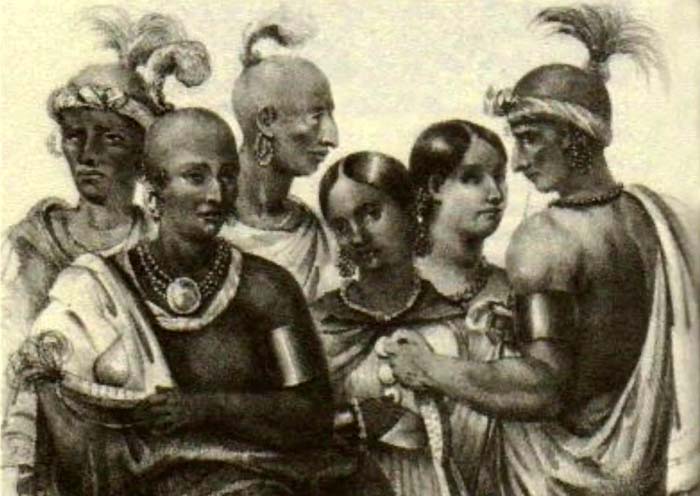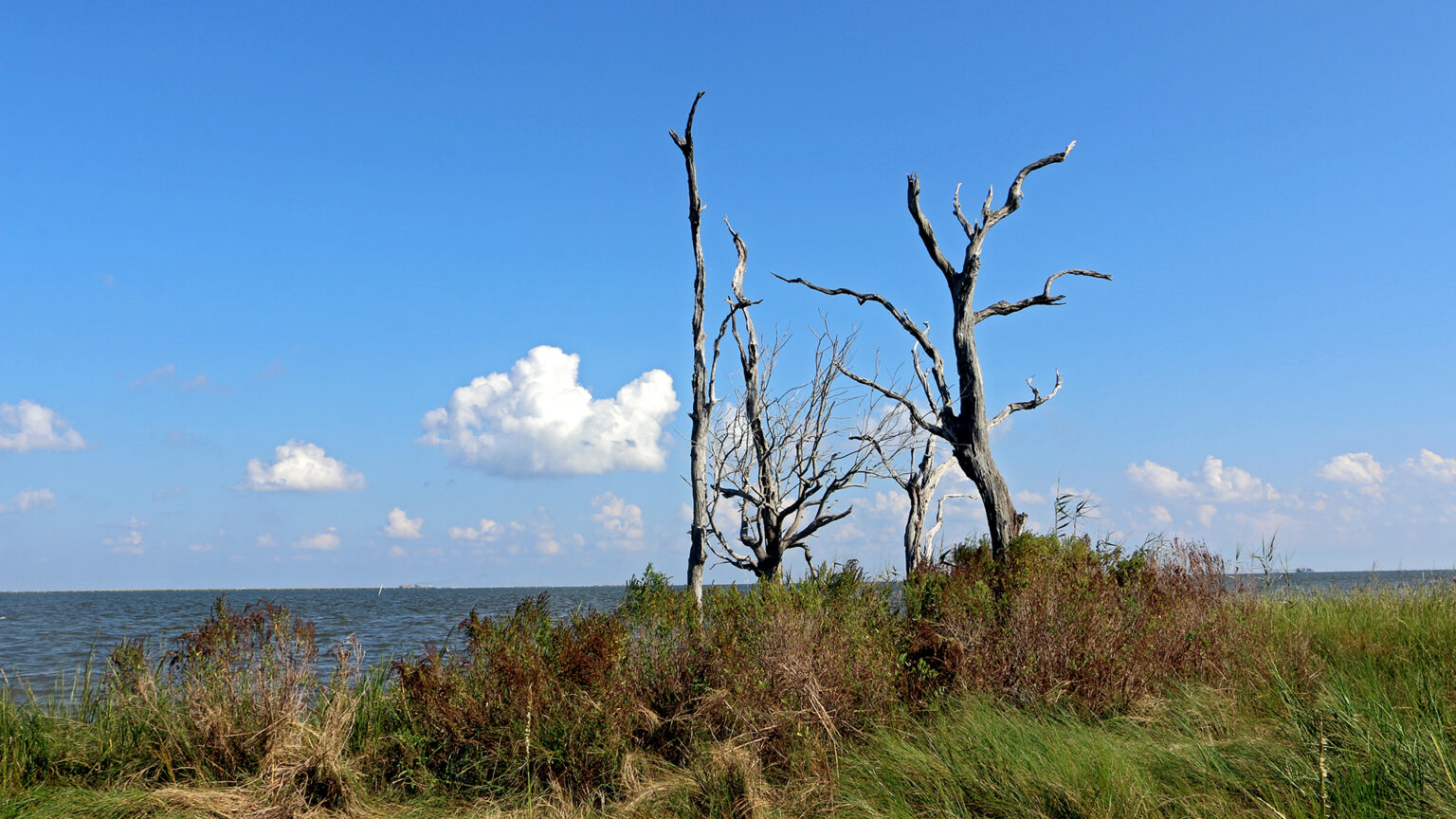
Echoes in the Cypress Swamps: The Enduring Legacy of the Chowanoke (and the ‘Chawasha’ Mystery)
In the verdant heart of North Carolina’s coastal plain, where the Chowan River winds its way to the Albemarle Sound, lies a landscape steeped in ancient history. For centuries, this region was the ancestral home of a powerful and resilient Indigenous people, known primarily to history as the Chowanoke. Yet, in the annals of early colonial records, a lesser-known, perhaps phonetic, variant occasionally surfaces: the "Chawasha" tribe. This linguistic ambiguity offers a poignant entry point into the story of a people whose narrative is a microcosm of Indigenous experiences across North America – a saga of rich culture, vibrant communities, devastating encounters, and an enduring spirit that continues to seek recognition and reclaim its heritage.
The journey into the Chowanoke’s past, and the clarification of the "Chawasha" reference, begins with an understanding of their place in the larger Algonquian linguistic family. Like many of their neighbors, including the Powhatan to the north and the Hatteras and Weapemeoc along the coast, the Chowanoke spoke a dialect of the Algonquian language. Their name, Chowanoke, is believed to derive from an Algonquian term meaning "people of the South" or "those at the fork/division," referring to their strategic location along the Chowan River. The appearance of "Chawasha" in some early European documents is likely a phonetic transcription by English, French, or Spanish explorers and settlers who struggled to accurately capture the sounds of Indigenous languages, or perhaps even a dialectal variation within the broader Algonquian group itself. For the purposes of historical accuracy and clarity, this article will primarily use "Chowanoke," acknowledging "Chawasha" as a likely historical variant that points to the same distinct cultural group.
A Flourishing Pre-Colonial Society

Before the arrival of Europeans, the Chowanoke were a thriving, well-organized society. Their territory spanned a significant portion of what is now northeastern North Carolina, encompassing rich agricultural lands, dense forests, and abundant waterways. Their villages, often palisaded for defense, were strategically located along the Chowan River and its tributaries, allowing easy access to vital resources.
Their economy was a sophisticated blend of agriculture, hunting, fishing, and gathering. Corn, beans, and squash were the staples of their diet, cultivated using traditional methods that sustained large populations. They were expert hunters, tracking deer, bear, and other game in the forests, and adept fishermen, utilizing weirs, nets, and hooks to harvest the bounty of the rivers and sounds. "Their lands were a veritable paradise," wrote an early English observer, "yielding such plenty that want was a word unknown among them." This abundance fostered a stable society with complex social structures.
The Chowanoke were led by powerful chiefs, known as werowances, who governed individual towns, and a paramount chief who held sway over the entire confederacy. Decisions were often made through councils, reflecting a participatory governance system. Family lines were likely traced matrilineally, a common practice among Algonquian peoples, where lineage and inheritance passed through the mother’s side. Spiritual beliefs centered on a deep reverence for the natural world, with shamans and spiritual leaders playing crucial roles in interpreting dreams, healing, and conducting ceremonies that honored the spirits of animals, plants, and ancestors. Their oral traditions, passed down through generations, served as the bedrock of their history, law, and cultural identity.
The Dawn of Encounters: Curiosity and Calamity
The relative isolation of the Chowanoke ended abruptly in the late 16th century with the arrival of English explorers, most notably those associated with the ill-fated Roanoke colonies. Sir Walter Raleigh’s expeditions, particularly the detailed maps and observations of John White, provided some of the earliest, albeit often biased, accounts of the Chowanoke and their neighbors. These early encounters were a mixture of curiosity, cautious trade, and growing apprehension.
Initially, Europeans were often impressed by the Indigenous peoples’ ingenuity and knowledge of the land. They sought to trade European goods like metal tools, cloth, and trinkets for valuable furs and local provisions. However, this period also marked the beginning of profound and irreversible changes. The most devastating immediate impact was not warfare, but disease. European diseases like smallpox, measles, and influenza, to which Indigenous populations had no immunity, swept through communities with terrifying speed and lethality. Villages that had once bustled with life were decimated, weakening the social fabric and leadership structures of the Chowanoke and other tribes. It is estimated that some areas saw a population decline of 90% or more within decades of contact.
The Unfolding Tragedy: Land, Conflict, and Diminishment
As English settlement expanded from Jamestown and later from the Albemarle Sound region, the relationship between the Chowanoke and the colonists deteriorated rapidly. The insatiable demand for land by the burgeoning colonial population led to inevitable conflict. The Chowanoke, once a formidable power, found themselves increasingly surrounded and outmatched by the technologically superior English, who also brought with them a different concept of land ownership – one based on exclusive individual property rather than shared use and stewardship.

A series of skirmishes and wars erupted in the late 17th century, often referred to as the Anglo-Chowanoke Wars. These conflicts, driven by colonial encroachment and Indigenous resistance, were brutal. Though the Chowanoke fought valiantly to defend their ancestral lands, they ultimately faced overwhelming odds. By the 1670s, their power was significantly diminished, and they were forced to sign treaties that ceded vast tracts of their territory to the colonists. These treaties often confined them to ever-shrinking reservations, severely limiting their traditional hunting grounds and agricultural lands.
A pivotal moment in their decline came during the early 18th century, with the outbreak of the Tuscarora War (1711-1715). This brutal conflict pitted the powerful Tuscarora tribe and their allies against the North Carolina colonists. The Chowanoke, weakened and pressured, found themselves in a precarious position. Some segments of the tribe allied with the colonists, hoping to secure their own survival and perhaps regain some favor. This complex alliance reflects the desperate choices Indigenous peoples were forced to make in a rapidly changing world. While their participation on the colonial side helped them avoid the full wrath of the colonists, it did not halt the relentless erosion of their land and autonomy.
The Struggle for Survival and Cultural Persistence
Following the Tuscarora War, the Chowanoke continued to face immense pressures. Their reservation lands dwindled further, and the colonial government increasingly exerted control over their internal affairs. Assimilation policies aimed at dissolving Indigenous identity were commonplace, with efforts to convert them to Christianity and encourage English education.
Despite these challenges, the Chowanoke demonstrated remarkable resilience. They adapted, intermarried with other Indigenous groups, African Americans, and even some Europeans, and subtly maintained aspects of their cultural identity. Many sought ways to integrate into the broader society while holding onto their heritage, often in clandestine ways. The community became smaller, more dispersed, and less visible in official records, but their spirit persisted.
For centuries, the story of the Chowanoke, like many other Eastern Seaboard tribes, became one of quiet survival, of maintaining traditions in the face of overwhelming odds. Their historical narrative was largely relegated to footnotes in colonial histories, often portrayed as a people who simply "disappeared."
Echoes in the Present: Legacy and Revival
Yet, the Chowanoke did not disappear. Today, their descendants are actively engaged in reclaiming and revitalizing their heritage. The Chowanoke Indian Tribe, based in Gates County, North Carolina, represents the modern-day continuation of this ancient people. They are a state-recognized tribe, diligently working towards federal recognition, a complex and often arduous process that requires extensive historical documentation and genealogical proof.
Their efforts are not just about legal recognition; they are about cultural reaffirmation. The tribe is dedicated to preserving and teaching their history, language, and traditions to younger generations. They are involved in archaeological projects to uncover and protect their ancestral sites, educational programs to inform the public about their past and present, and community initiatives to strengthen tribal bonds. "We are still here," states a representative of the modern Chowanoke Indian Tribe, a powerful echo across centuries. "Our ancestors walked these lands, and their spirit lives on in us. Our story is not over; it is being rewritten with every step we take towards the future."
The story of the Chowanoke, whether referenced as such or through the historical variant "Chawasha," is a vital chapter in the broader narrative of American history. It is a testament to the richness and complexity of Indigenous cultures that thrived before European contact. It is a sobering reminder of the devastating impact of colonization, disease, and conflict. Most importantly, it is an inspiring saga of a people’s enduring spirit, their quiet resistance, and their determined efforts to reclaim their identity and ensure that the echoes of their ancestors resonate vibrantly in the modern world. Their journey from powerful confederacy to diminished reservation and now to a revitalized modern tribe offers invaluable lessons about resilience, cultural preservation, and the ongoing quest for justice and recognition.


